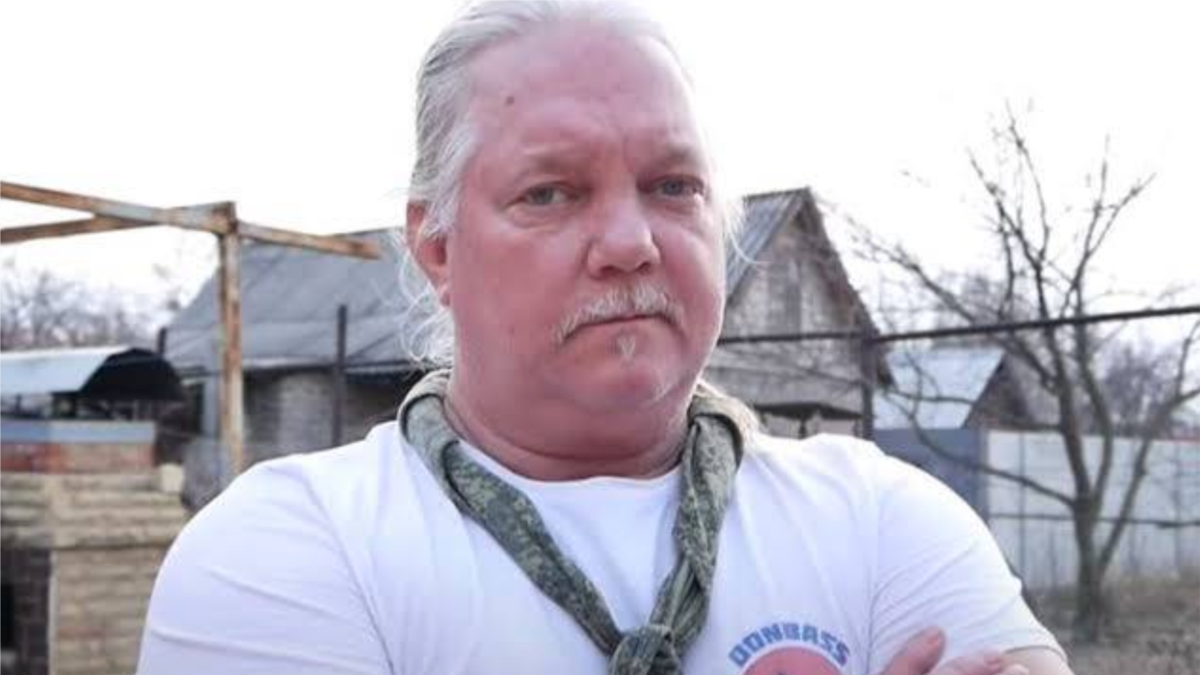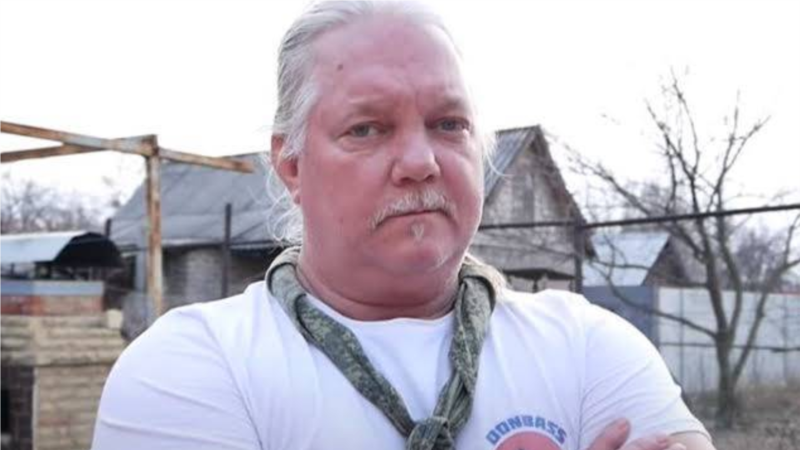The death of ‘Texas’: What Russian media silence says about self-censorship

On April 19, Russian state media reported that U.S. national Russell Bentley, 64, was killed in Ukraine’s Russia-occupied Donetsk region. Bentley, known as “Texas” among his Russian comrades, had fought on the side of the Donetsk People’s Republic (DNR), an internationally unrecognized republic which was created by Russia-directed forces in 2014 and annexed by Russia in 2022.
Bentley’s involvement in Eastern Ukraine “extended beyond combat,” Russia’s state-run broadcaster Sputnik wrote in an April 19 obituary.
“He served as a Sputnik contributor, and thanks to his reports, he provided first-hand insights into Russia’s special military operation,” Sputnik wrote.
While in Russia-occupied Ukraine, Bentley converted to Orthodox Christianity, got married, and became a Russian citizen in 2022.
Margarita Simonyan, head of Russia’s state-run broadcaster RT, confirmed Bentley’s death in a social media post.
“Russell Bentley, aka Texas, a real American, really from Texas, died in Donetsk. He fought there for our people. Collaborated with our Sputnik (news agency). [It’s] terrible. Kingdom Of Heaven,” Simonyan wrote on X.
Simonyan did not say how Bentley died, and no Russian state news agency reported about the circumstances of his death.
The rumors are that Russia’s 5th tank brigade captured, tortured and killed Bentley sometime after he disappeared on April 8.
Even if those rumors prove to be untrue, the Russian media’s silence presents a striking contrast with previous Ukraine war-related deaths of prominent fighters and journalists, which were scrutinized for months. It also sheds a light on the scope of self-censorship in Russia, amplified by a law criminalizing any criticism of the nation’s armed forces.
On April 12, DNR police announced a search for Bentley was under way. The same day, RT’s Russian language service published an interview with Bentley’s wife, Lyudmila. According to that report, Bentley was in the Petrovsky district of Donetsk — where he and Lyudmila lived — when Ukrainian armed forces shelled the area.
Lyudmila said Bentley went out to see if victims wounded in the attack “needed his help.” He never returned.
In a video appeal published on April 13, Lyudmila called on authorities to remember what Bentley had done for the DNR and the Russian Federation, stressing his value in teaching “regular Americans” and “Westerners” that their “enemy is located in America, not Russia.”
On April 15, Lyudmila wrote on a Telegram channel previously used by Bentley that she had received “reliable and confirmed information” that Bentley had been “harshly detained” by Russian soldiers from the 5th Tank Brigade in the Avtobaza area in the Petrovsky district of Donetsk between 4:20 and 5:00 p.m. on April 8.
Lyudmila appealed to top national and regional authorities, along with “all caring people,” to do everything to save Bentley.
On April 19, chairman of the Public Chamber of the DNR, Alexander Kofman, told the pro-Russia Donetsk News Agency that Lyudmila had confirmed Russell’s death.
“I received information from Texas’s wife, Lyudmila, and she was told that a DNA test confirmed a match with Russell. She hasn’t seen the body yet, so there’s always a chance for a miracle,” Kofman said.
Kofman said it would be premature to draw conclusions about Bentley’s death and asked the public to wait for a statement from law enforcement agencies.
So far, there has been no statement from law enforcement agencies.
But on social media, some well-known local figures and journalists publicly shared Lyudmila’s suspicions of the Russian troops’ involvement in her husband’s disappearance and death.
“We meticulously protect our army from any discreditation. So meticulously that it’s becoming sterile,” Alexander Khodakovsky, chief of the DNR’s security service and commander of the Russia-aligned Vostok battalion which Bentley fought for, wrote in a Telegram post.
He added that those who killed Bentley should be “rewarded with exemplary punishment.”
Khodakovsky later deleted that post, but it is still visible on the Vostok battalion’s Telegram channel.
In an April 19 post on Vkontakte, Alexander Korobko, editor-in-chief of The Russian Hour news channel on RuTube, to which Bentley contributed, wrote that it was known from witness testimony that Bentley had been “taken by people in camouflage and military uniforms.”
The worst-case scenario is if Bentley had been taken by “werewolves in uniforms,” Korobko said, using a term used to describe corrupt individuals.
If Bentley had met such a fate, Korobko said, it is important “not to hide them under the carpet” and “not be afraid” to reveal the culprits.
The anonymous Telegram news channel Kremlevskaya Tabakerka (Kremlin Snuffbox) noted the nature of Bentley’s alleged murder would serve as a propaganda blow against Russia’s foreign recruitment efforts.
“‘Texas’ gave 10 years of his life to free Donbas. He fought as a volunteer and then covered in detail what was happening in the DPR. It shouldn’t be this way. What will other volunteers think?”
Russia has recruited thousands of foreign fighters to fight in Ukraine, some of whom were allegedly tricked or coerced into taking up arms.
Bentley fought for the Russia-aligned Vostok battalion separatist militia and rose to prominence after being interviewed by Vice News in 2015.
Bentley spent time in prison on felony marijuana trafficking charges before leaving the United States. He described himself as a communist who had come to eastern Ukraine to fight “fascists.”
That mirrored false Russian propaganda claims used to justify what later proved to be Moscow’s clandestine invasion of Ukraine.



